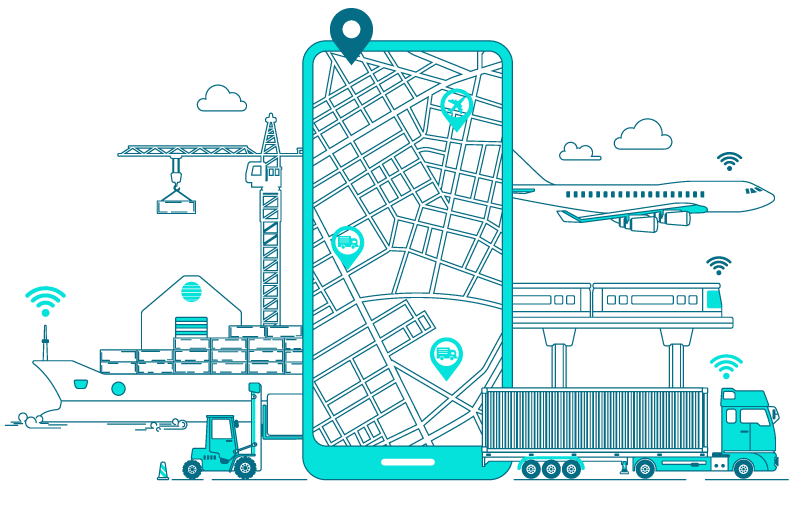Transportation and logistics are very highly competing industries contributing to India’s economy. Managing logistics operations and workflow is quite a tedious task. ERP stands for Enterprise Resource Planning, which is known to be a definitive tool that allows a convenient flow of supply and demand in the logistics industry. Certainly, the system has the ability to seamlessly operate various processes and handle new turbulent conditions with ease.
As software, it can manage various business functions through a centralized system. ERP solutions are of great importance, it brings all the major attributes of a business on a single platform. Likewise, it is a robust platform that helps businesses to manage manufacturing, supply chain modules, asset management, maintenance costs, and many more.
Therefore, by streamlining and automating these processes the organization can achieve higher operational efficiency and profitability. Similarly, get the actionable data and deep insights to optimize the entire supply chain operations.
Challenges Faced by Logistics Industry
Embracing a uniform enterprise-wide system environment is necessary to resolve the roadblocks faced by the logistics industry. In addition, choosing an ideal and comprehensive solution can create immense value for your business. Nowadays, enterprise resource planning software is adopted by several enterprises as it can build the right strategies for the transportation of goods and services and eliminate certain challenges like:
- Absence of visibility into status, inventory, and timelines.
- Inefficient detailed data analytics and reporting.
- Lack of feedback and real-time monitoring.
- Inadequate warehousing and taxation discrepancies.
- Poor data management and mismanaged deliveries to customers.
- Unable to abide by trade rules and regulations uniformly.
Get cloud-based ERP solutions to reduce several risks in logistics management. Secondly, it can create significant cost reduction and optimize business processes.
Benefits of Leveraging ERP Software in the Logistics Industry
There are multiple notable benefits of integrating ERP into transportation and logistics to optimize the administrative and operational environment. The software is essential for managing the organization more effectively. As a result, integrating various functions can influence the successful running of the business.
Inventory control and delivery planning
It ensures operational efficiency by having complete control over the inventory. You can get all the data and information comprising orders, inbound and outbound sales, deliveries, and more on a centralized system. Therefore, managing all the notable works under one single dashboard and streamlining all the supply chain management processes is necessary for the smooth running of operations. This will lead to better planning for dispatching or placing orders.
Improve transparency
Getting a consolidated view of the supply chain process as the ERP software tends to be integrated with real-time tracking features. For instance, enabling cloud deployment can help you to track a high volume of data in real-time. You can get the exact location of the vehicle and monitor the route to enhance business operations with a GPS tracking system. In addition, the system provides inventory visibility to handle demand and supply changes.
Data management and compliance
ERP software for logistics can manage the bulk of data without any manual errors. Access the control of important and accurate data that includes shipping taxes, manufacturing costs, consignment notes, etc. Moreover, the system is also competent to file and process regulatory compliance procedures in logistics. A centralized database allows businesses to make informed decisions and keep their data more secure on the cloud.
Staff management
An Integrated ERP platform is useful for optimizing workforce management. You can track the break times, leaves, payment bonuses, overtime, etc of freight operators. Therefore, it will help you to make better workforce decisions by monitoring all the activities that fall under human resource management. This enables the logistics companies to make informed decisions and enhance staff management.
Improve distribution
Speeding up the distribution times can work wonders for the logistics business. With the help of single dashboard ERP software, all the distributors, suppliers, delivery partners, and retailers can get detailed information about the deliveries. Secondly, they can monitor the delivery areas, orders, inventory, payments, etc to ensure effective distribution management. The system enables you to optimize the routes to achieve timely deliveries.
ERP software solutions for logistics are necessary for the overall growth of business as they can handle unpredictable cost fluctuations and enhance productivity. Integrating intelligence-embedded technology is the best way to make an organization stand out from the crowd.
Effective ERP Software for a Logistics Company
Integration of ERP is an integral part of supply chain management. The system has the ability to streamline the production, transportation, and storage process of the logistics. In other words, it tends to add value across each part of the supply chain and offers deep insights into transportation management. Moreover, embracing digital solutions like IoT and Artificial Intelligence in Logistics is beneficial to build a supply chain more resilient to changes as per the market demands.
To sum up, with the help of optimized planning tools, you can get complete data visibility and a holistic view of the entire business operations. Modern ERP solutions can take your business to the next leap and escalate the experience of end customers. Therefore, the system will lead to substantial improvements in logistics performance.

